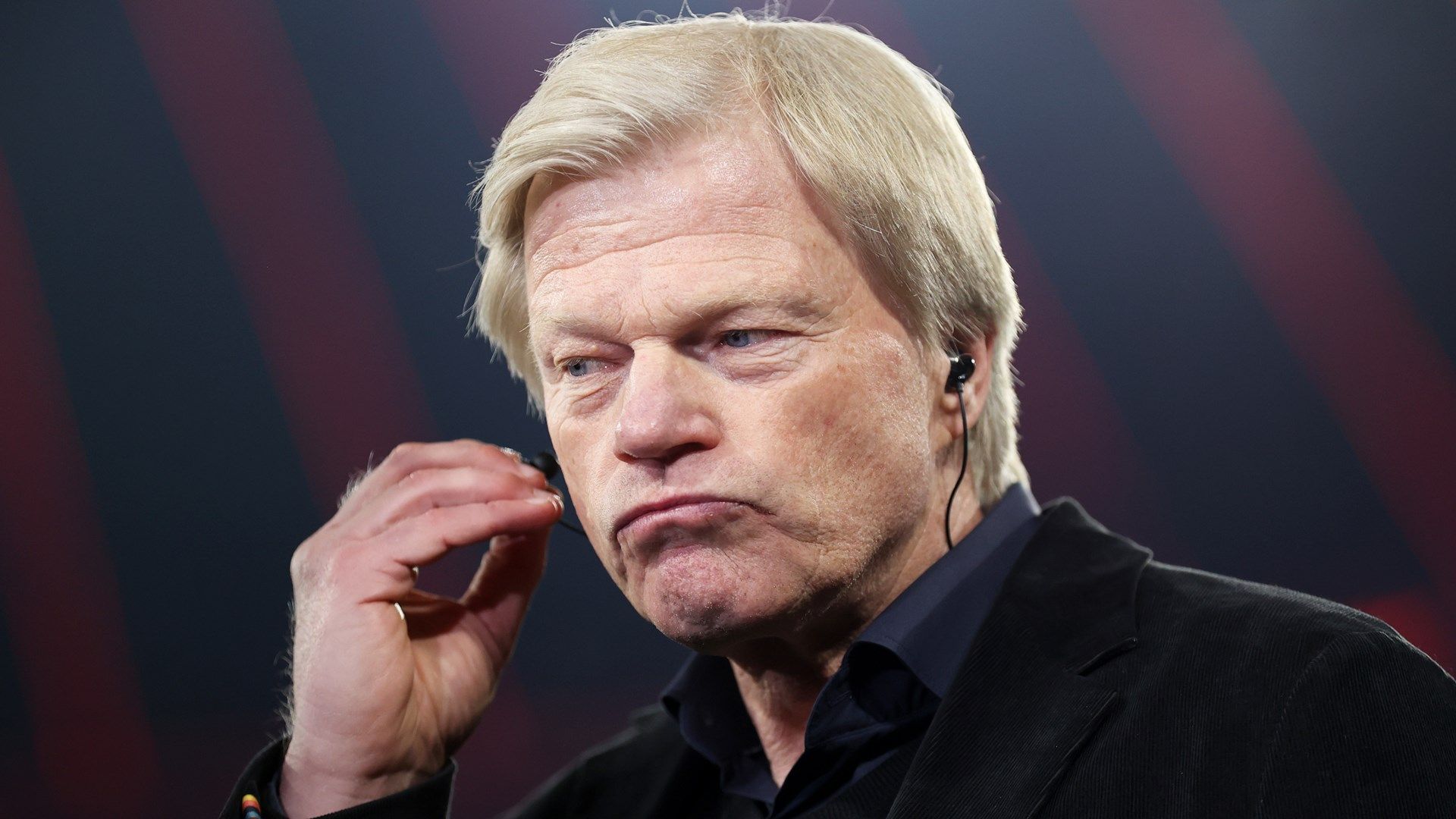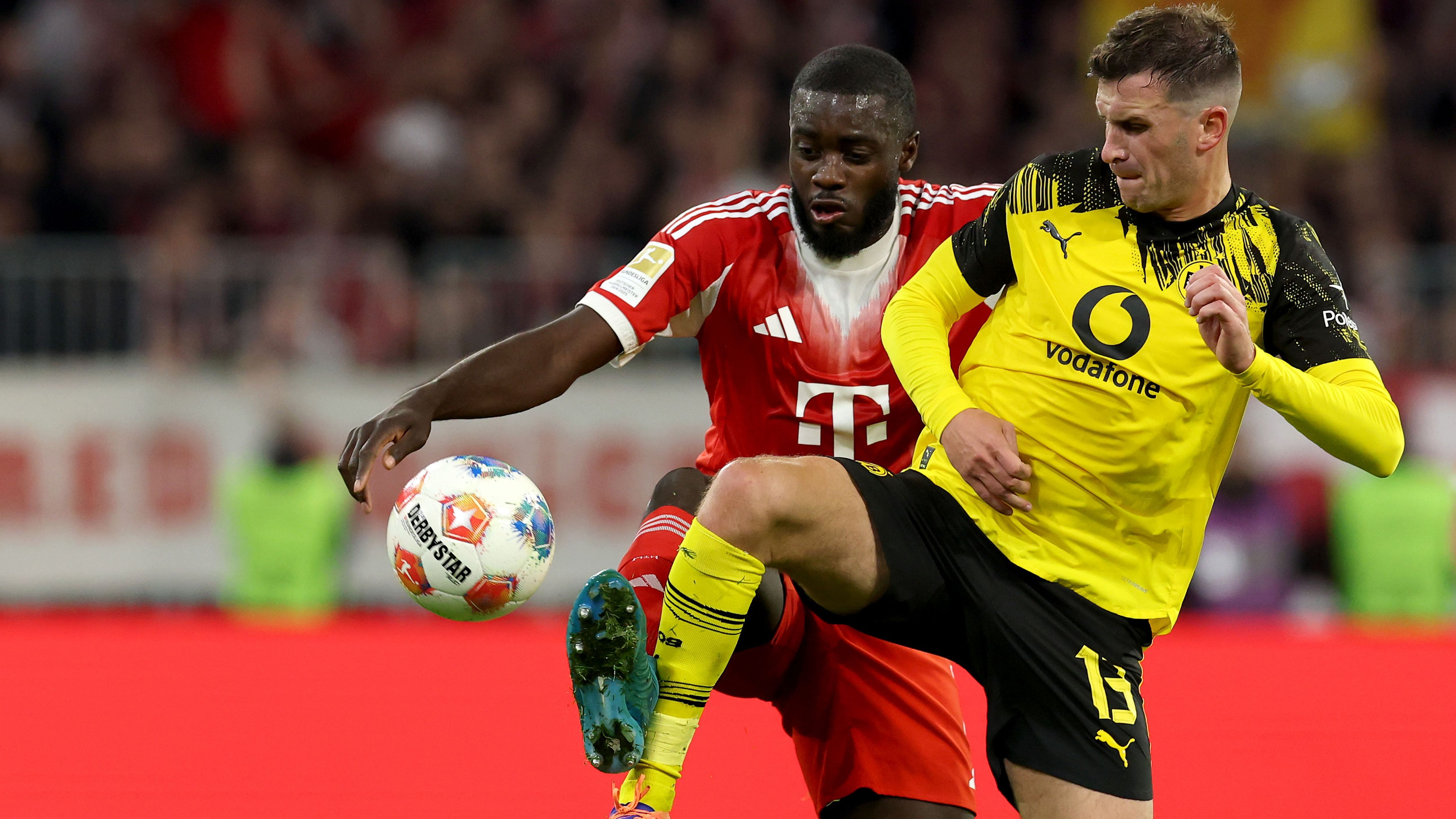

Why German Football Must Evolve: Kahn’s Warning on Tradition vs. Innovation
In an era where Bundesliga clubs face mounting challenges, former star Oliver Kahn delivers a compelling critique, pushing for a shift from outdated customs toward innovative strategies inspired by powerhouses like Real Madrid. This call to action highlights the urgent need for Bundesliga teams to rethink their approaches to avoid slipping further behind dominant leagues such as the Premier League, emphasizing the balance between heritage and forward progress.
Kahn’s Call for Strategic Overhaul in Bundesliga Football
Oliver Kahn, the revered German football icon, has highlighted the risks of the Bundesliga‘s shrinking edge, advising clubs to abandon their reliance on historical practices in favor of progressive plans akin to those at Real Madrid. During his appearance on Sky Sport, Kahn noted that sticking to the status quo could relegate the league to a mere development ground without significant reforms.
Real Madrid’s Approach as a Model for Change
While Real Madrid operates as a member-driven entity, its leadership is actively seeking ways to bring in key investors to bolster finances while preserving core values. Kahn pointed out, “Florentino Perez is deeply engaged in exploring how to weave strategic investors into the club’s framework.” He stressed that tradition holds value but shouldn’t serve as a barrier to advancement, remarking, “It’s crucial to honor the past while also forging ahead.”
Growing Financial Divide in European Leagues
In Kahn’s view, the economic chasm between the Bundesliga and leagues like the Premier League or La Liga is expanding rapidly, fueled by inadequate broadcasting deals and strict funding rules. He cautioned that without adjustments, German football might end up supplying talent to wealthier competitions, turning into a secondary circuit.
The Wake-Up from Champions League Setbacks
Kahn acknowledged that the heavy losses German teams have endured in the Champions League should jolt the entire system awake. “We can’t deceive ourselves; these outcomes may become routine unless we act,” he stated, contrasting this with Real Madrid’s setup as a pure club without corporate structures. He added that examining the Premier League’s growth reveals the essence of long-term planning, which Germany often overlooks by prioritizing tradition over evolution.
Ensuring Future Financial Stability
Ultimately, top-tier football thrives where funds are abundant, and Kahn insisted on strategies to secure resources so German players remain and the league doesn’t fade into obscurity. He emphasized, “No one desires this decline, so we must proactively safeguard our financial future without sacrificing our identity.”
Balancing Heritage and Modern Investment Needs
Kahn advocated for harmonizing economic stability with on-field excellence, suggesting clubs explore inventive methods to attract investment. “The goal isn’t to hand over the club’s legacy to outsiders,” he clarified, “but to identify sustainable ways to preserve value and generate revenue, which is essential for any professional outfit.”
Debate Over Ownership and the 50+1 Rule
These remarks emerge amid ongoing discussions about the Bundesliga‘s structure, especially after pushback against outside investment in the DFL. Kahn’s words underscore the emerging split between defenders of Germany’s 50+1 ownership policy and those arguing for adaptations to ensure survival in a competitive landscape.
Player Perspectives and League Comparisons
Bayern Munich’s star forward Harry Kane, who transitioned from Tottenham, has shared observations on the differences between the Bundesliga and Premier League. As England’s captain, he depicted German football as more fluid yet less organized, noting, “Teams in the Bundesliga often build from the back, apply pressure, and sometimes use man-marking, creating larger spaces that favor quick transitions.”
Atmosphere and Global Influence
Kane praised the vibrant energy in the Bundesliga but recognized the Premier League’s superior worldwide presence and business model, making it the leading force globally. Kahn reinforced this, warning that without a more astute commercial strategy, Bundesliga clubs will find it hard to hold onto stars, leading to continued talent drain.
Declining European Performance and Economic Gaps
Over recent years, the Bundesliga‘s standing in Europe has waned, with just two major titles won by German sides in the last decade: Bayern’s 2020 Champions League victory and Eintracht Frankfurt’s 2022 Europa League success.
UEFA Rankings and Revenue Disparities
The Bundesliga has dropped to fourth in UEFA’s five-year assessment, following the Premier League, Serie A, and La Liga. On the financial front, the divide is stark, with Premier League teams earning €7.4 billion compared to the Bundesliga‘s €4.8 billion last season.
Broadcasting Rights Imbalance
This gap also affects TV agreements, where the Premier League’s domestic and overseas contracts greatly exceed Germany’s. For the 2025-26 cycle, English clubs will divide almost €2 billion in TV earnings, whereas Bundesliga teams will receive just €1.12 billion across their divisions.
The Ongoing Challenge for German Football
Kahn’s insights mirror broader worries about Bundesliga clubs losing key players and international allure, as seen in departures like those of Florian Wirtz, Thomas Muller, and Kingsley Coman, contrasted with limited high-profile arrivals such as Luis Diaz.
Navigating Tradition and Economic Demands
The key task is to merge Germany’s football traditions with today’s financial demands. Kahn’s statements may spark renewed conversations among club leaders, especially at giants like Bayern and Borussia Dortmund, where demands for updates are intensifying.
The Current State of Bundesliga
In the ever-evolving world of football, Bundesliga clubs are facing increasing pressure to innovate and adapt if they want to keep pace with Europe’s top leagues. For years, German teams have relied on their traditional approaches, emphasizing youth development through academies like those at Bayern Munich and Borussia Dortmund. However, as the Premier League continues to dominate with its massive revenues and global appeal, experts are calling for a shift. By looking at how Real Madrid has built a powerhouse through strategic innovations, Bundesliga clubs could gain the edge needed to rival the Premier League and attract top talent worldwide.
Real Madrid’s Strategic Approach
Real Madrid’s success isn’t just about star players; it’s a blueprint of smart strategies that have kept them at the pinnacle of European football. One key aspect is their focus on long-term sustainability, blending financial savvy with on-field excellence. This has allowed them to consistently challenge for titles and maintain a strong position in the UEFA Champions League.
Youth Academy and Development Programs
Real Madrid’s La Fábrica academy is often hailed as one of the best in the world for producing homegrown talent. Unlike traditional Bundesliga methods that prioritize quantity in youth systems, Real Madrid emphasizes quality and integration into the first team. Players like Vinicius Junior and Rodrygo have seamlessly transitioned from the academy to stardom, helping the club save millions on transfers while fostering loyalty.
Bundesliga clubs could adopt similar tactics by investing more in personalized training and scouting networks. For instance, enhancing facilities and using data analytics to identify promising youngsters early could mirror Real Madrid’s approach, ensuring a steady pipeline of stars that rival the Premier League’s reliance on big-money buys.
Financial Management and Revenue Streams
Financially, Real Madrid has mastered the art of diversification. They generate revenue not just from matchdays but through lucrative sponsorships, merchandise, and global tours. This strategic approach has enabled them to weather economic storms and fund ambitious transfers without over-relying on TV deals alone.
In contrast, many Bundesliga clubs stick to conservative budgeting tied to domestic broadcasting rights. To rival the Premier League, German teams need to explore new revenue streams, such as expanding e-commerce for fan merchandise or partnering with international brands. Real Madrid’s model shows how effective financial management can turn a club into a global entity, potentially increasing Bundesliga clubs’ bargaining power in player negotiations.
Why Bundesliga Clubs Should Adopt These Strategies
The Premier League’s dominance is evident in its record-breaking TV deals and ability to attract the world’s best players. If Bundesliga clubs continue with traditional methods, they risk falling further behind. Embracing Real Madrid’s strategies could bridge this gap by making German football more competitive and appealing.
Benefits for Competitiveness
- Enhanced Talent Retention: By improving youth development, Bundesliga clubs can retain top prospects instead of losing them to Premier League teams, boosting squad depth and long-term success.
- Increased Global Visibility: Real Madrid’s branding efforts have created a worldwide fanbase. Bundesliga clubs could follow suit with targeted marketing campaigns, social media engagement, and international friendlies to attract sponsors and investors.
- Financial Stability and Growth: Diversifying income sources, as Real Madrid does, could help Bundesliga teams invest in infrastructure and player wages, making them more attractive to elite coaches and players.
Adopting these elements might not happen overnight, but the potential payoff is huge. For example, clubs like RB Leipzig have already started incorporating data-driven strategies, showing early signs of progress in European competitions.
Potential Challenges in Implementation
Of course, switching from traditional methods isn’t without hurdles. Bundesliga clubs may face resistance from fans attached to the league’s community-focused ethos, or regulatory issues with the 50+1 rule limiting external investment. Real Madrid’s model, while effective, relies on a more commercial structure that German clubs would need to adapt carefully to maintain their unique identity.
To overcome these, clubs should start with pilot programs, such as partnering with tech firms for advanced scouting tools or running fan surveys to gauge support for new initiatives.
Key Steps for Bundesliga Clubs to Rival the Premier League
If Bundesliga clubs are serious about competing, here are actionable steps inspired by Real Madrid’s playbook:
- Invest in Technology: Use AI and analytics for player scouting and performance tracking, helping identify undervalued talents much like Real Madrid does with their data team.
- Strengthen Partnerships: Form alliances with global brands and media outlets to boost exposure, similar to Real Madrid’s deals with Adidas and streaming services.
- Modernize Academies: Focus on holistic development programs that include mental health support and international exposure, ensuring players are ready for the demands of top-tier football.
By taking these steps, Bundesliga clubs can evolve their strategies and position themselves as serious rivals to the Premier League. This shift could not only elevate on-pitch results but also enhance the overall fan experience, making German football a must-watch globally. Ultimately, blending Real Madrid’s innovative tactics with Bundesliga’s rich traditions might just be the winning formula for sustained success.









